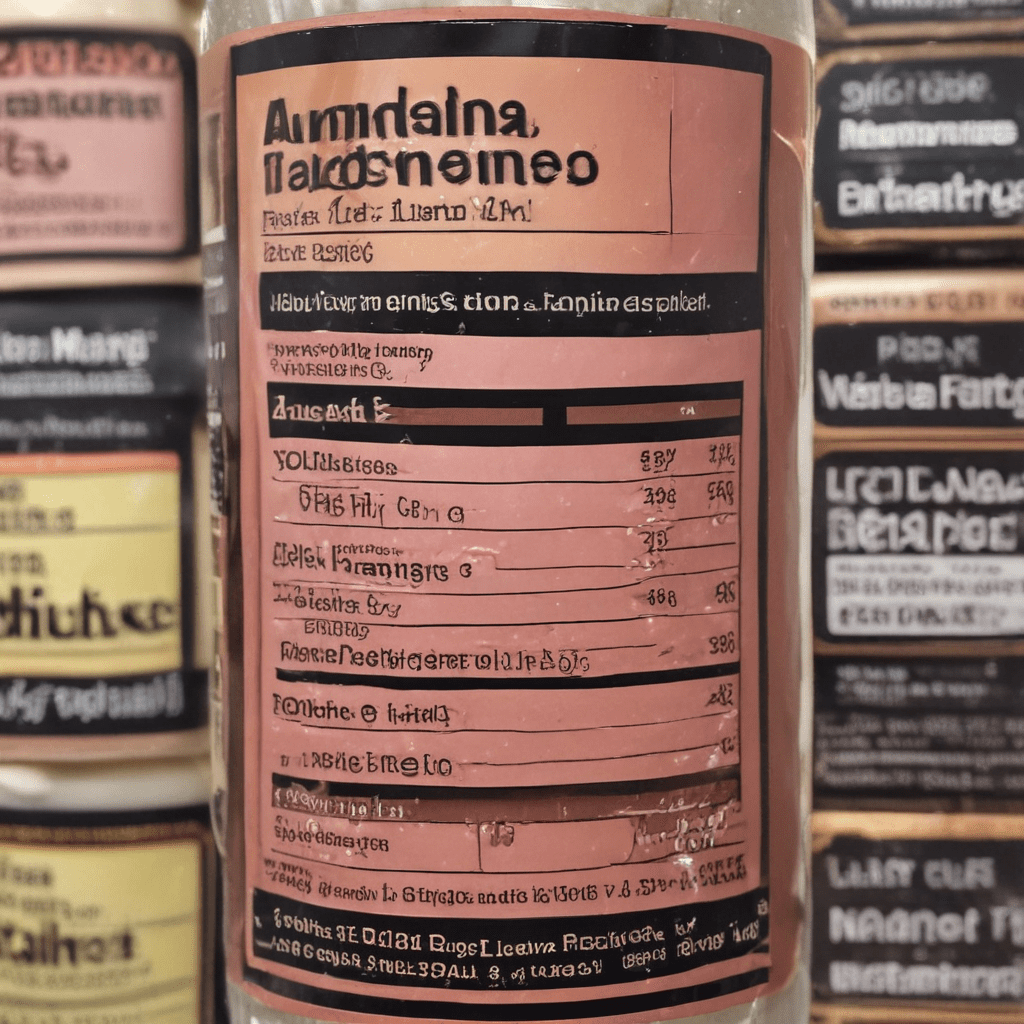
Pregnancy Nutrition Labels Decoded: Understanding the Basics
Congratulations on your pregnancy! This exciting time brings a whirlwind of changes, including your nutritional needs. As your baby grows, you'll need to adjust your diet to ensure they receive the essential nutrients for healthy development.
Understanding food labels becomes crucial during pregnancy. They provide valuable information about the nutrient content of your food, empowering you to make informed choices for both your health and your baby's.
1. Understanding the Basics of Pregnancy Nutrition Labels
Pregnancy nutrition labels are similar to regular food labels, but they include additional information relevant to pregnant women. These labels typically display:
- Serving size and the number of servings per container
- Total calories and calories from fat
- Macronutrients: protein, carbohydrates (including sugars), and fat (saturated and unsaturated)
- Micronutrients: vitamins and minerals, including key nutrients for pregnancy like folate, iron, calcium, and vitamin D
- Daily Values (DV): a percentage indicating how much each nutrient contributes to your daily needs
Remember: Daily Values are based on a 2,000 calorie diet, which may need to be adjusted for your individual calorie needs during pregnancy.
2. Daily Recommended Values for Pregnant Women
During pregnancy, your body's requirements for certain nutrients increase. Here are some essential daily recommended values to keep in mind:
- Folate: 600 micrograms (mcg)
- Iron: 27 milligrams (mg)
- Calcium: 1,000 mg
- Vitamin D: 600 international units (IU)
- Omega-3 fatty acids: 650-850 mg
3. Decoding Key Nutrients on the Label:
The following section will delve deeper into the key nutrients you need to pay attention to during pregnancy and how to interpret them on the label.
6. Limiting Unhealthy Ingredients
While focusing on nutrient-dense foods is crucial, it's equally important to limit unhealthy ingredients that can negatively impact your pregnancy. Here are some key ingredients to watch out for:
6.1. Added Sugars
Excessive sugar intake during pregnancy can lead to gestational diabetes, weight gain, and other health complications. Aim to limit added sugars, which are often found in processed foods, sugary drinks, and desserts. Opt for naturally sweet fruits instead.
6.2. Saturated and Trans Fats
Saturated and trans fats raise bad cholesterol levels, increasing the risk of heart disease. Limit these fats, commonly found in fried foods, fatty meats, and processed snacks. Choose lean protein sources and healthy fats like those found in avocados, nuts, and olive oil.
6.3. Sodium
Excessive sodium intake can contribute to high blood pressure and water retention during pregnancy. Limit processed foods, canned goods, and restaurant meals, which tend to be high in sodium. Opt for fresh, whole foods and season your dishes with herbs and spices instead of salt.
7. Decoding Food Additives and Preservatives
Food labels often list additives and preservatives, which can raise concerns for pregnant women. While some additives are safe in moderation, others are best avoided. Research unfamiliar additives and prioritize foods with minimal processing and a shorter ingredient list.
8. Identifying Potential Food Allergies and Sensitivities
During pregnancy, your immune system undergoes changes, making you more susceptible to food allergies and sensitivities. Pay attention to any new or worsening symptoms after consuming specific foods. If you suspect an allergy or sensitivity, consult your healthcare provider for evaluation and guidance.
9. Reading the Ingredient List for Hidden Sources of Nutrients
The ingredient list provides valuable insights beyond the nutrition facts panel. It reveals hidden sources of nutrients, such as fortified cereals containing folic acid or calcium-fortified orange juice. Utilize the ingredient list to make informed choices and ensure you're getting the nutrients you need.
10. Making Informed Food Choices for a Healthy Pregnancy
By understanding pregnancy nutrition labels and making informed food choices, you can ensure a healthy and fulfilling pregnancy for both you and your baby. Remember:
- Prioritize nutrient-dense whole foods like fruits, vegetables, whole grains, lean protein, and healthy fats.
- Limit unhealthy ingredients like added sugars, saturated and trans fats, and excessive sodium.
- Be mindful of food additives and preservatives, opting for minimally processed foods whenever possible.
- Pay attention to potential food allergies and sensitivities, consulting your healthcare provider if needed.
- Utilize the ingredient list to identify hidden sources of nutrients and make informed choices.
With knowledge and mindful choices, you can navigate the world of pregnancy nutrition labels and ensure a healthy and nourishing journey for you and your growing baby.
FAQ
1. Are there any specific foods I should avoid during pregnancy?
Yes, there are some foods to avoid during pregnancy, including:
- Raw or undercooked meat, poultry, and eggs
- Unpasteurized milk and cheese
- Liver and other organ meats
- High-mercury fish like swordfish, king mackerel, and tilefish
- Raw sprouts
- Unwashed fruits and vegetables
2. Do I need to take prenatal vitamins?
Prenatal vitamins are recommended for all pregnant women to ensure they are getting the essential nutrients needed for fetal development. However, it's important to consult your healthcare provider to determine the right prenatal vitamin for you.
3. How much weight should I gain during pregnancy?
The recommended weight gain during pregnancy varies depending on your pre-pregnancy weight and body mass index (BMI). Talk to your healthcare provider about your individual weight gain goals.
4. Can I exercise during pregnancy?
Yes, exercise is generally safe and beneficial during pregnancy. However, it's important to talk to your healthcare provider before starting any new exercise program, especially if you have any underlying health conditions.
5. What are some common pregnancy cravings?
Pregnancy cravings are common and can vary widely from person to person. Some common cravings include sweets, salty foods, and sour foods. If you have any concerns about your cravings, talk to your healthcare provider.


